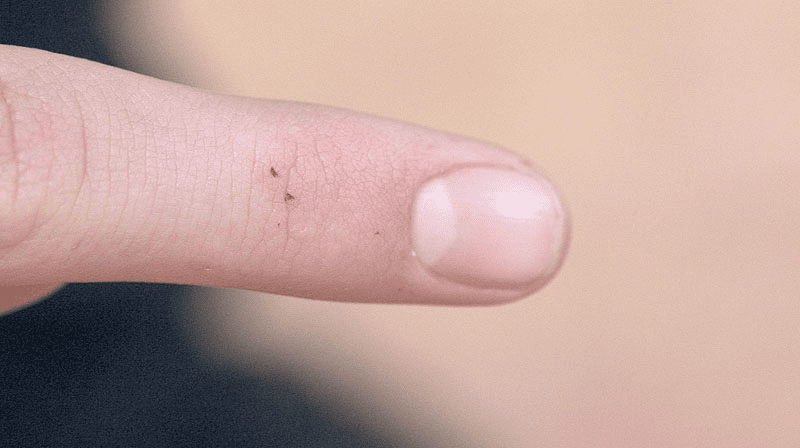Black widow bites are among the most feared of arachnid interactions, and with good reason. At 15 times the potency of rattlesnake venom, it’s nasty stuff, but most black widows will keep hold of their precious unless they feel threatened. That said, a human hand probing inside a dark hole in which a spider is hiding can be pretty threatening when you’re the size of a grape, so black widows biting humans can and does happen.
So, if you’ve been bitten by a black widow spider, what happens next? Predominantly, one of two things.
You get lucky, the black widow bite doesn’t contain venom
Cooking up venom is a costly activity for animals like the black widow, and when the supply is used up it needs replacing, temporarily leaving them vulnerable. As such, they aren’t going to bite and envenomate everything that annoys them, and they won’t deliver the same amount of venom when they do use it.
A black widow is most likely to use venom if they feel at risk of death themselves, but you’re not going to be able to assess this after receiving a bite. As such, you need to consider the other possibility…
You don’t get lucky, the black widow bite contains venom
The five meaty sausages of the human hand can look pretty scary to a black widow spider, so should you accidentally grab at one in the shed they may well fear for their life and envenomate you. Similarly, if you prod them enough they’ll eventually get annoyed enough to bite you, as this trio of aspiring spider men found out when they tested if a black widow nip would give them superpowers.
Black widow spider bites are one of the more clinically significant presentations globally, but they don’t compete with the Sydney funnel-web when it comes to the most dangerous to humans generally. Their venom contains seven proteins with neurotoxic activity, and while it’s almost always fatal for the insect prey it evolved to kill, it only occasionally proves fatal for humans.
Symptoms of a black widow bite
Black widow bite symptoms range from feeling not much of anything, to slight pain, to a syndrome that’s specific enough to have been named “latrodectism”. The most prominent toxin in black widow bite venom is alpha-Latrotoxin, which binds irreversibly to protein receptors triggering a release of neurotransmitters.
Among the neurotransmitters set loose are acetylcholine, dopamine, norepinephrine, epinephrine, and glutamate, explain Williams et al (2022), and it’s this merry band of misery that unleashes the symptoms of latrodectism.
Latrodectism is characterized by generalized muscle pain and cramping that’s often worse in the abdomen, sometimes being confused for unrelated illnesses like appendicitis and peritonitis. There have also been rare cases of priapism in children following black widow bites, a symptom that’s more commonly associated with wandering spider bites (and is named after the very unfortunate God of Gardens).
As latrodectism progresses, the pain will worsen as patients develop a rapid pulse, breathing, and raised blood pressure. This was certainly the case for a woman who tried injecting a crushed up black widow spider to get high.
Pain continues to worsen, usually starting at the site of the bite but progressing to reach the entire body, and breathing difficulties can be complicated by pre-existing conditions like asthma, possibly requiring intervention in intensive care.
While a black widow bite is a very unpleasant experience, for most people it won’t be fatal, but there are rare cases of death among the young, old, and pregnant. An analysis of 23,409 exposures to black widow venom found that only 1.4 percent experienced life-threatening effects from the bite. However, pre-existing conditions and allergies can also complicate treatment, so if you suspect a black widow bite it’s better to be safe than sorry in accessing immediate medical care.
The content of this article is not intended to be a substitute for professional medical advice, diagnosis, or treatment. Always seek the advice of qualified health providers with questions you may have regarding medical conditions.
All “explainer” articles are confirmed by fact checkers to be correct at time of publishing. Text, images, and links may be edited, removed, or added to at a later date to keep information current.
Source Link: What Happens If A Black Widow Bites You?
